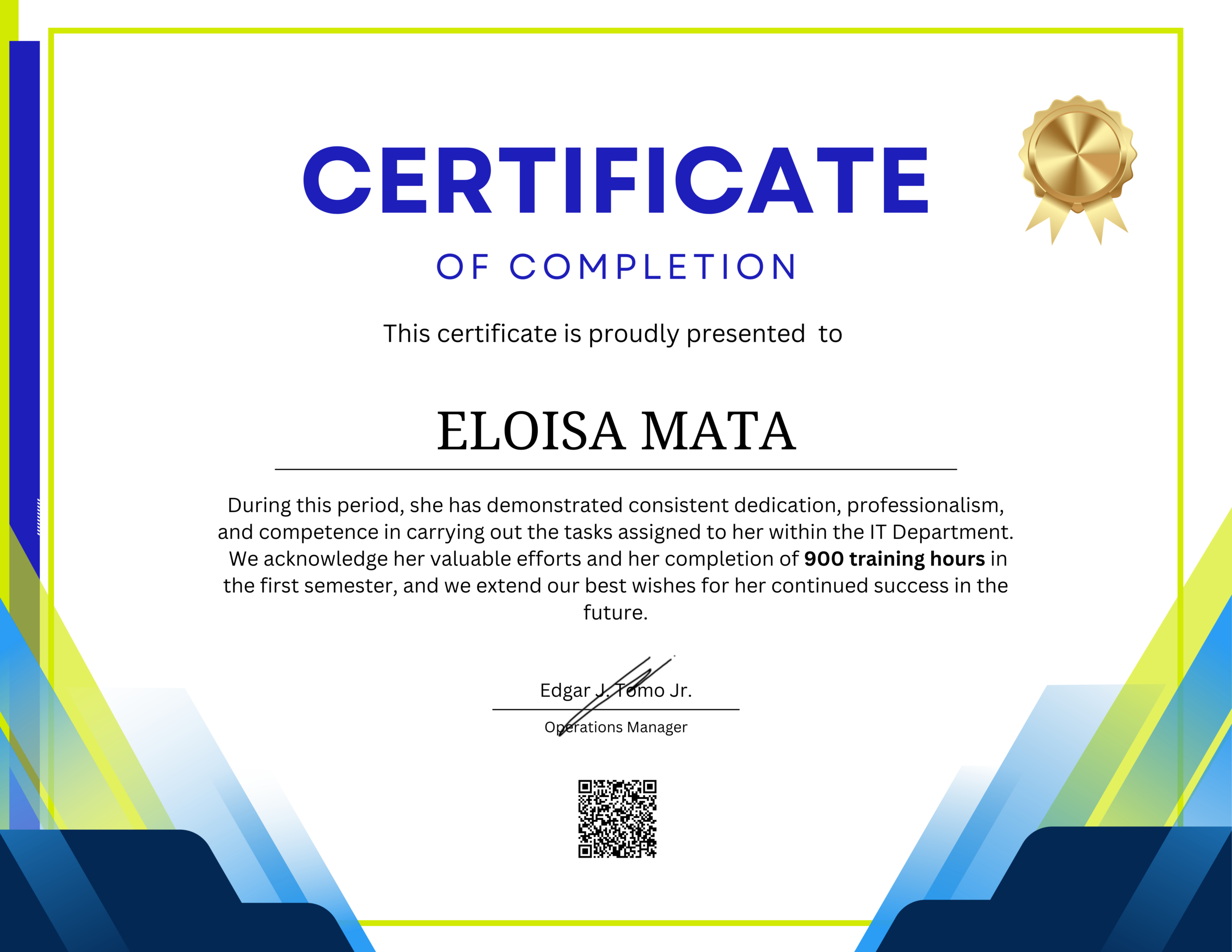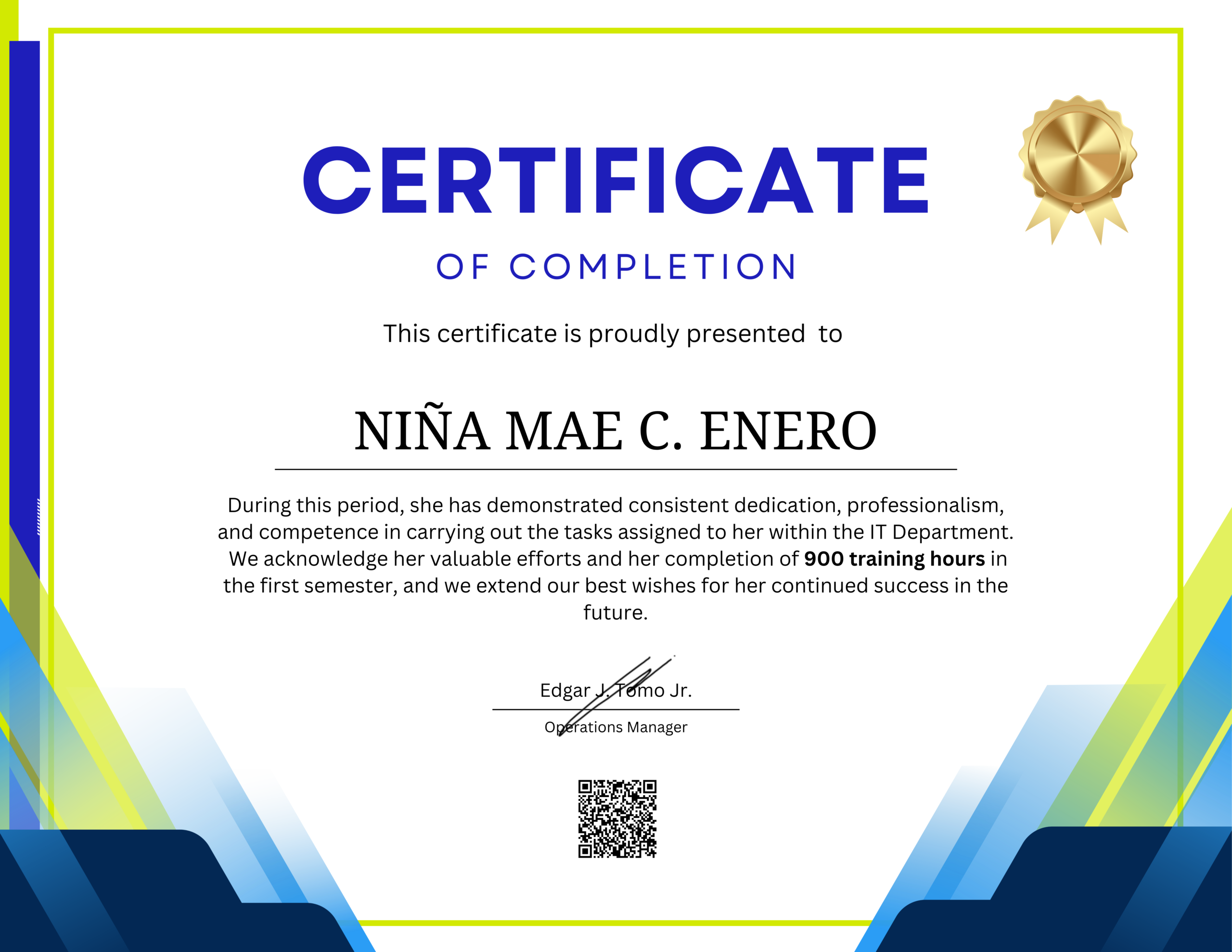The On-the-Job Training Experience of Niña Mae C. Enero Acknowledging Dedication in IT On-the-Job Training. During her on-the-job training period, she demonstrated consistent dedication and a strong sense of responsibility in fulfilling …
CCTV Evidence: How Residential Cameras Aid Law Enforcement in Crime Investigations.

Introduction
In an age marked by technological advancement and increasing concerns about public safety, residential Closed-Circuit Television (CCTV) systems have emerged as a powerful ally for law enforcement agencies worldwide. The ubiquity of surveillance cameras in residential areas represents a paradigm shift in crime prevention and investigation strategies. This comprehensive article delves into the multifaceted role of residential CCTV cameras in aiding law enforcement efforts, from deterring criminal activities to providing irrefutable evidence for solving complex cases.
The Evolution of Residential CCTV Systems
The evolution of residential CCTV systems reflects the broader trajectory of technological innovation and its democratization. Once confined to the domains of commercial enterprises and government institutions, CCTV technology has undergone significant advancements, becoming more accessible and affordable to individual homeowners. The proliferation of wireless, internet-enabled cameras, coupled with declining costs and user-friendly interfaces, has democratized surveillance, empowering homeowners to take proactive measures to safeguard their properties and communities.
Deterrence: The First Line of Defense
One of the most compelling arguments in favor of residential CCTV systems is their deterrent effect on criminal activities. Research has consistently shown that the presence of surveillance cameras acts as a potent deterrent, dissuading potential perpetrators from targeting properties equipped with visible security measures. The fear of being caught on camera and subsequently apprehended serves as a powerful deterrent, influencing the decision-making processes of would-be criminals.
Moreover, the psychological impact of surveillance cannot be overstated. The perception of being under constant scrutiny instills a sense of accountability and vigilance among residents, contributing to a collective sense of security within the community. By deterring criminal activities before they occur, residential CCTV systems serve as the first line of defense, fortifying neighborhoods against intrusions, burglaries, and other illicit activities.
Real-Time Monitoring and Prompt Intervention
In addition to their deterrent effect, modern residential CCTV systems offer homeowners the ability to monitor their properties in real time, regardless of their physical location. Through mobile applications and web-based platforms, homeowners can remotely access live video feeds from their surveillance cameras, enabling them to promptly detect and respond to suspicious activities.
This real-time monitoring capability enhances situational awareness and empowers homeowners to take decisive action in the event of a security breach. Whether it’s a trespasser loitering near the property or a package theft in progress, homeowners can alert law enforcement authorities promptly, enabling swift intervention and potentially preventing crimes from escalating.
Assisting Law Enforcement: Turning Data into Evidence
While the deterrence and prevention aspects of residential CCTV systems are invaluable, perhaps their most significant contribution lies in their capacity to assist law enforcement agencies during crime investigations. When criminal activities do occur, the video footage captured by residential CCTV cameras serves as a critical source of evidence, providing investigators with invaluable insights into the circumstances surrounding the incident.
The high-definition video footage obtained from residential CCTV systems can be instrumental in identifying suspects, corroborating eyewitness testimonies, and reconstructing the sequence of events leading up to a crime. From vandalism and theft to acts of violence and vandalism, residential CCTV cameras capture a wealth of visual data that can help law enforcement agencies piece together the puzzle of a crime scene.
Moreover, the timestamped and geotagged nature of CCTV footage enhances its evidentiary value, establishing a clear timeline of events and ensuring its admissibility in legal proceedings. By leveraging this digital evidence, law enforcement agencies can expedite investigations, apprehend suspects, and ultimately secure convictions, bringing closure to victims and accountability to perpetrators.
Challenges and Ethical Considerations
Despite their undeniable benefits, the widespread adoption of residential CCTV systems raises a host of ethical, privacy, and technical considerations that must be addressed. Privacy advocates raise concerns about the potential misuse of surveillance footage and the erosion of personal privacy rights. The proliferation of surveillance cameras also raises questions about the implications of constant monitoring on individual autonomy and civil liberties.
Furthermore, ensuring the secure storage and transmission of sensitive video data is paramount to prevent unauthorized access or tampering. Homeowners must prioritize cybersecurity measures and adhere to best practices for data protection to mitigate the risk of breaches and safeguard the integrity of surveillance footage.
Collaboration and Community Engagement
The successful utilization of residential CCTV evidence in crime investigations hinges on effective collaboration between law enforcement agencies and the communities they serve. Building trust and fostering positive relationships with residents is essential for encouraging voluntary sharing of surveillance footage and facilitating cooperation in ongoing investigations.
Community-oriented initiatives, such as neighborhood watch programs and crime prevention partnerships, can leverage residential CCTV networks to enhance surveillance capabilities and promote a collective sense of security. By empowering residents to become proactive partners in crime prevention efforts, law enforcement agencies can leverage the collective power of community surveillance to deter criminal activities and promote public safety.
Conclusion
In conclusion, residential CCTV cameras represent a formidable asset in law enforcement’s arsenal, offering a potent combination of deterrence, prevention, and investigative capabilities. From deterring criminal activities to providing irrefutable evidence for solving complex cases, these surveillance systems have revolutionized modern policing strategies.
However, their widespread adoption also raises ethical, privacy, and technical considerations that must be carefully navigated. By addressing these challenges and fostering collaboration between law enforcement agencies and communities, we can harness the full potential of residential CCTV cameras to enhance public safety, deter criminal behavior, and ensure justice for victims of crime.
As we continue to navigate the complexities of modern surveillance technologies, it is imperative that we strike a balance between security imperatives and respect for individual privacy rights. By leveraging the power of residential CCTV systems responsibly and ethically, we can create safer, more secure communities for generations to come.
Related Articles
The On-the-Job Training Experience of Niña Mae C. Enero Acknowledging Dedication in IT On-the-Job Training. During her on-the-job training period, she demonstrated consistent dedication and a strong sense of responsibility in fulfilling …
The On-the-Job Training Experience of Chrisfel Zeye F. Mendoza Introduction. On-the-Job Training (OJT) plays a vital role in preparing students for the professional world by allowing them to apply academic knowledge in …



